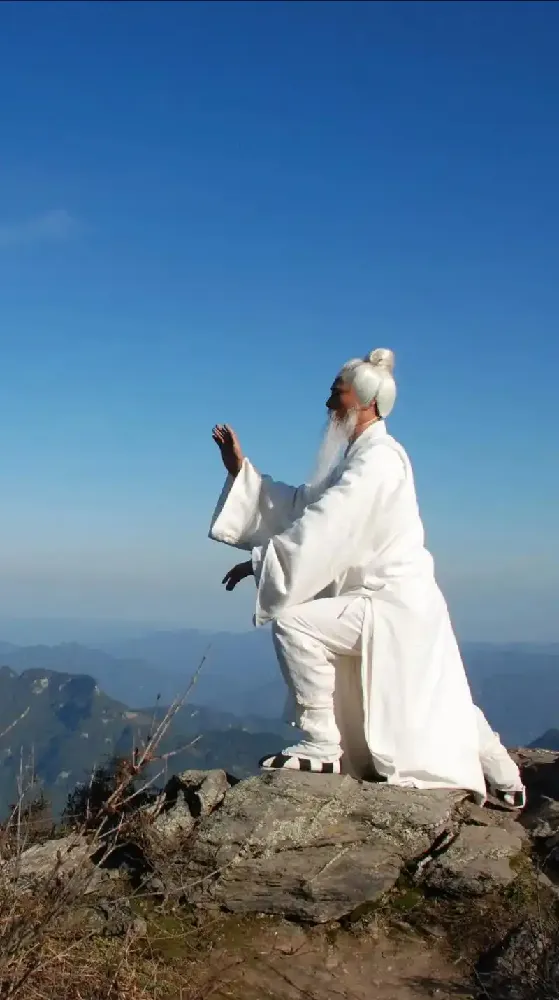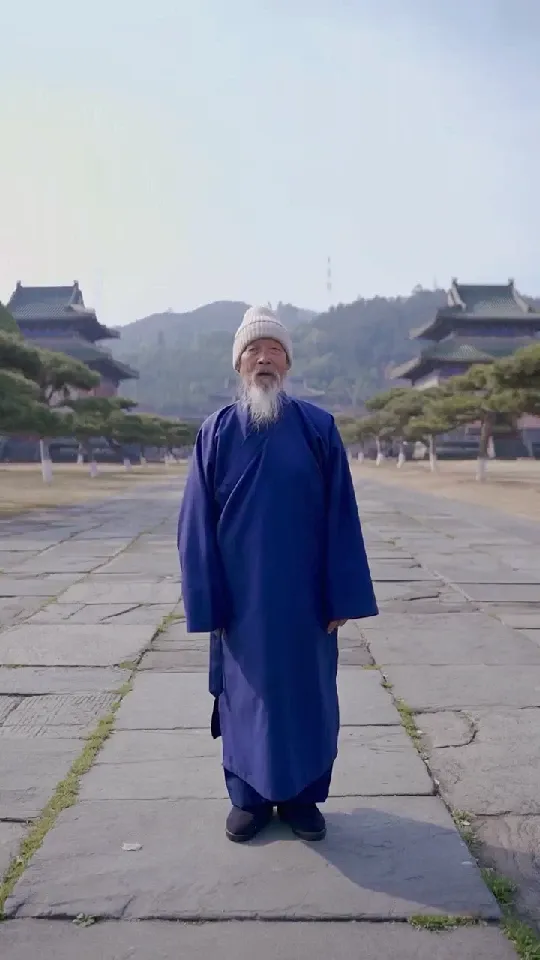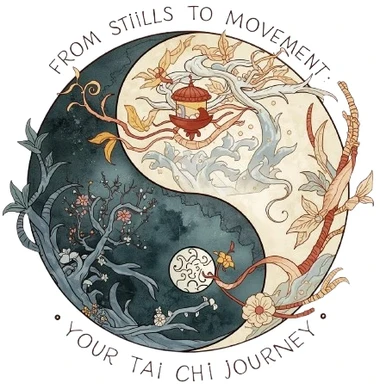Let's be honest. When life gets chaotic—deadlines pile up, your lower back aches from too much sitting, and your brain feels like a browser with 100 tabs open—the last thing you're thinking about is "cultivating Qi." You just want to feel better. Now.
What if I told you that the ancient Taoist masters of Wudang Mountain faced the same human challenges? Their solution wasn't a magic pill. It was a system. A science of living well, baked right into the movements of Wudang Kung Fu.
This isn't just "exercise." It's a complete operating manual for your body and mind. Let's explore how these 600-year-old principles are your missing link to modern vitality.

Beyond Flexibility: The Wudang Approach to Health
Most fitness focuses on the "hardware"—bigger muscles, faster times. Wudang focuses on the "operating system." We're upgrading the software that runs everything: your nervous system, your energy levels, your resilience to stress.
The goal isn't to fatigue you. It's to recharge you.
At the heart of this are two practices that might seem simple, but are deceptively powerful: Zhan Zhuang (Standing Meditation) and Qigong.
Your Internal Battery Charger: The Power of Standing Still
I know what you're thinking. "Standing? That's it?" Trust me, I was skeptical too. But then I tried it at a Tai Chi Wuji retreat, and it revolutionized my understanding of energy.
Zhan Zhuang isn't just standing. It's a specific, aligned posture that acts like a system reset for your body.
- The Science: Modern life puts most of us in a constant state of low-grade "fight or flight." This drains our adrenal system and keeps our muscles unnecessarily tense. Standing meditation does the opposite. It activates the "rest and digest" parasympathetic nervous system.
- The Sensation: The first few minutes are a battle with your own mind. Then, something shifts. You feel a deep warmth building in your core—your dantian. Tensions in your shoulders and jaw begin to melt away. It's your body's own innate healing mechanism kicking in.
- Our Prescription: Just 10-15 minutes of standing practice can be more rejuvenating than a nap. It's the ultimate tool for recovering from mental burnout and chronic stress.

The Wudang Tune-Up: Qigong for Modern Aches and Pains
If Zhan Zhuang charges your battery, Qigong is the process of clearing out the energy pathways to make sure that charge flows everywhere it's needed.
Many of the classic Qigong movements are brilliant solutions to modern physical problems.
The "Wudang Desk De-Compressor" (Based on Lifting the Sky):
- Stand or sit tall. Interlace your fingers and turn your palms toward the ceiling.
- Inhale deeply as you press your palms upward, lengthening your entire spine. Feel the stretch from your hips to your armpits.
- Exhale as you gently release. Repeat 5 times.
Why it works for you: This single movement counters the forward hunch of computer posture, opens up the chest and lungs for better breathing, and relieves pressure on compressed spinal discs. It's a 30-second fix for your posture.
The Moving Pharmacy: Health Benefits Backed by Science
This isn't just traditional wisdom; it's being confirmed by modern research. A consistent Wudang practice can lead to:
- Reduced Chronic Pain: The gentle, weight-bearing movements improve joint lubrication and strengthen the supportive musculature, often providing relief for back and knee pain.
- Better Balance & Fall Prevention: The constant weight shifting and emphasis on a rooted stance dramatically improve proprioception. This is crucial for everyone, from athletes to seniors.
- Enhanced Cardiovascular Health: The deep, coordinated breathing calms the nervous system, which can help regulate blood pressure and improve heart rate variability.
- Mental Clarity & Emotional Resilience: The moving meditation aspect increases gray matter in the brain and teaches you to remain calm and focused under pressure—a skill that translates directly off the training ground.
The Tai Chi Wuji Hierarchy of Health
We see building health like building a house. You can't put the roof on first.
- The Foundation (Weeks 1-4): Zhan Zhuang & Basic Qigong. This is non-negotiable. You're learning to generate and sense your own energy, and establishing the mind-body connection.
- The Framework (Months 2-3): Foundational Form Practice (e.g., Wudang 18 Form). Now you're learning to move that energy through your body in a coordinated, flowing way. This integrates strength, flexibility, and focus.
- The Finishing Touches (Ongoing): Advanced Forms & Deeper Internal Work. This is where you refine your practice, address specific health goals, and explore the art's full depth.
Your Invitation to Feel the Difference
This might sound great in theory, but the real proof is in your own body. We challenge you to a 7-day experiment:
- Each morning, stand in Zhan Zhuang for just 5 minutes.
- Perform the "Desk De-Compressor" three times throughout your day.
- Notice the subtle shifts. Do you feel calmer? Is your posture better? Is there less tension in your neck?
We want to hear from you. This is where your journey gets real.
What's the one health goal—more energy, less pain, better sleep—that feels just out of reach right now?
Come share your goal and your 7-day experiment results in the Tai Chi Wuji forum. Our community and coaches are here to help you connect these ancient principles to your modern life. Let's build a foundation of vibrant health, together.
FAQ
I have a chronic health condition (e.g., arthritis, hypertension). Can I still practice Wudang health methods?
In most cases, absolutely. Practices like Tai Chi and Qigong are famously low-impact and adaptable. However, we always recommend consulting with your doctor and working with a qualified instructor who can help you modify movements to suit your needs. The gentle nature of Wudang health work makes it accessible to almost everyone.
How is Wudang Qigong different from other Qigong styles?
Wudang Qigong is deeply integrated with its martial and Taoist philosophical roots. The movements aren't just for health; they are the foundational building blocks for internal power and martial skill. This dual purpose often makes the practice more engaging and mentally stimulating.
I don't have time for long practices. Is there any benefit to just 5-10 minutes a day?
Yes, 100%. Consistency is far more important than duration. A daily 5-minute Zhan Zhuang practice will yield more noticeable benefits than a one-hour session once a month. The key is to make it a daily ritual, like brushing your teeth.
Can Wudang practices really help with mental health issues like anxiety?
While not a replacement for professional therapy, the evidence is compelling. The combination of deep breathing, mindful movement, and meditative focus acts as a powerful regulator for the nervous system. Many practitioners report significant reductions in anxiety and rumination, and an improved ability to manage stress.
